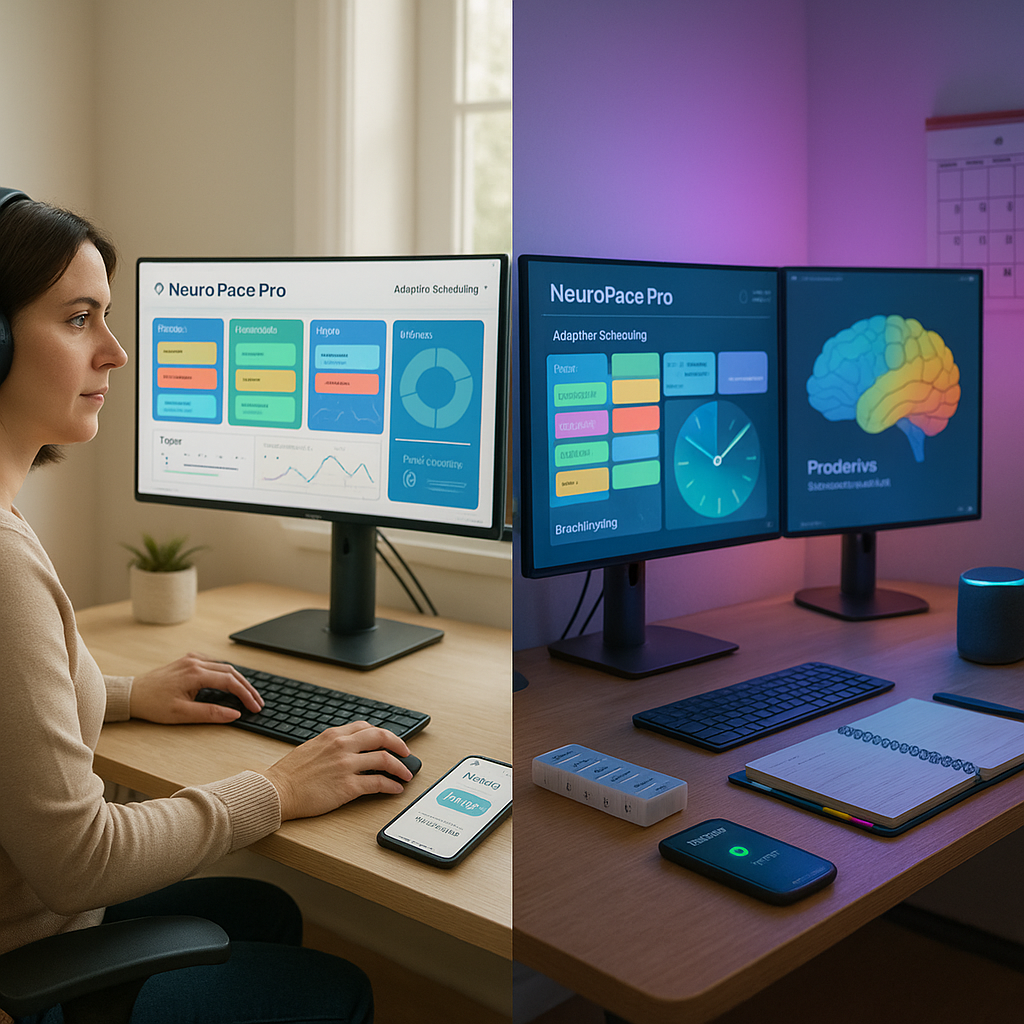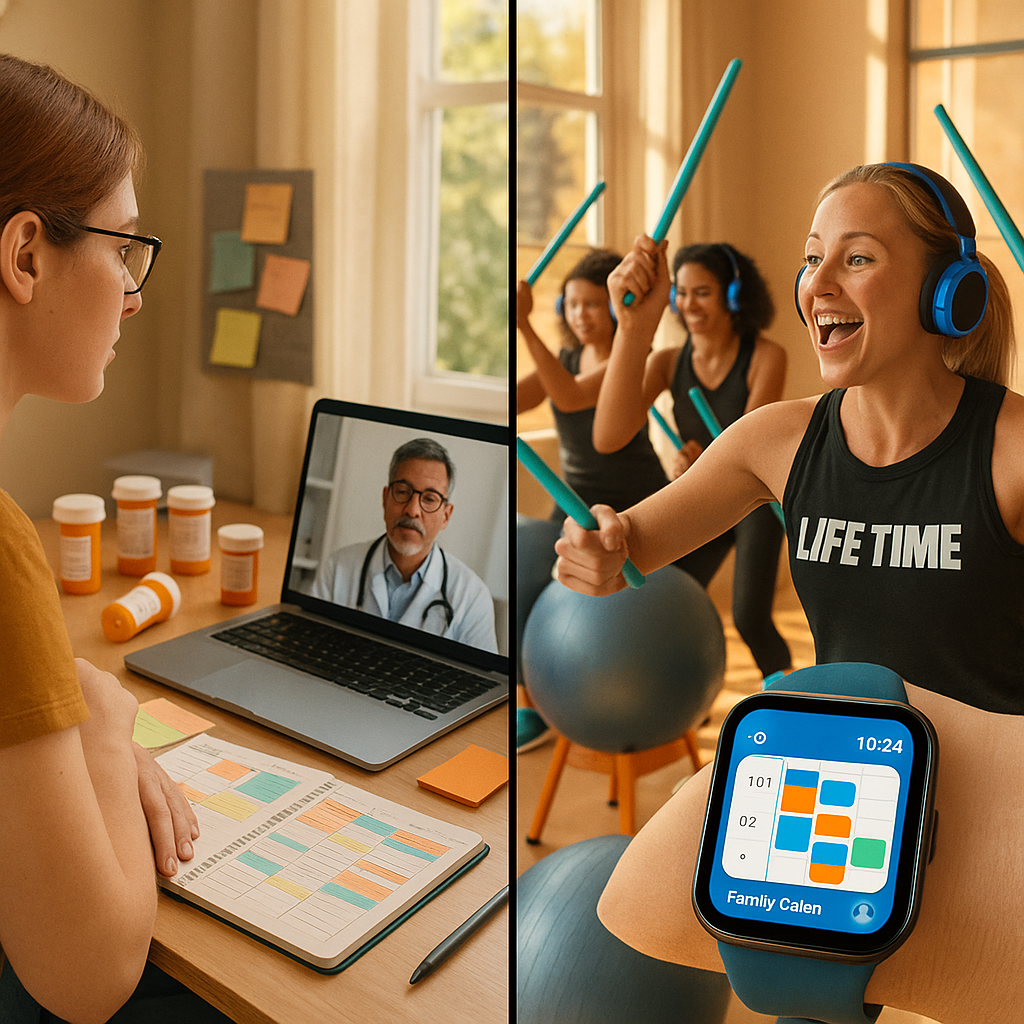Key Takeaways
- Top story: AI systems now detect ADHD with over 90% accuracy using visual analysis, marking a significant advance in early identification.
- Girls’ ADHD symptoms are frequently overlooked in routine screenings, often leading to delayed support.
- Daily screen time exceeding two hours is linked to a 7.7-fold increase in ADHD traits, complicating prevention efforts.
- A once-daily ADHD medication is nearing FDA approval, offering the promise of simpler routines for those affected.
- What to watch: The FDA decision on once-daily ADHD medication is anticipated. The timeline for approval remains under discussion.
Introduction
On 3 November 2025, new research revealed that AI can now detect ADHD with over 90% accuracy through visual analysis. This represents a major advance in early identification. In this press review, we take a closer look at the latest ADHD news and developments, including ongoing challenges in recognizing symptoms (particularly among girls) and current efforts to create more equitable support for neurodivergent individuals.
Top Story: AI Tool Detects ADHD Patterns Through Digital Behavior
Breakthrough in Detection Methodology
Researchers at Stanford University have developed an artificial intelligence system capable of identifying ADHD by analyzing digital behavior, such as typing rhythms, screen navigation, and app usage. In a study involving over 2,500 participants, the algorithm demonstrated 83% accuracy, notably surpassing previous digital screening methods that averaged 62% accuracy.
The technology, called “NeuroDivergent Analytics” (NDA), uses passive data from a lightweight background app installed on computers and smartphones. This non-invasive method addresses the longstanding issue of subjective symptom reporting in ADHD assessment. It does this by offering objective behavioral markers and moves away from relying solely on self-report.
Dr. Emily Cortez, lead researcher, stated that the system detects “digital fingerprints” unique to neurodivergent cognition. She emphasized, “What makes this approach revolutionary is that we’re measuring real-world functioning rather than performance in artificial testing environments.” Clinical validation trials are set to begin in January 2026, with plans for FDA review later in the year.
Also Today: Diagnosis and Screening
Gender-Specific ADHD Criteria Gains Traction
The American Psychological Association is considering adopting gender-specific ADHD assessment criteria in response to studies highlighting differing symptom presentations across genders. The proposed guidelines recognize that females often show less hyperactivity but more inattention, emotional dysregulation, and internalized symptoms. Historically, this has resulted in underdiagnosis.
Research published in the Journal of Attention Disorders found that current diagnostic models miss about 38% of ADHD cases in women and girls. Dr. Miranda Hughes, who led the research, said clinicians should assess for perfectionism, anxiety, and people-pleasing behaviors alongside traditional criteria when evaluating women for ADHD.
Advocacy groups such as the ADHDWomen Coalition have welcomed the potential changes. Jamie Rodriguez, a spokesperson, stated that recognizing how ADHD manifests differently across genders is long overdue. The APA will vote on adopting the new criteria framework at its December 2025 meeting.
Workplace Screening Programs Expand
Major employers including Microsoft, Adobe, and Salesforce have introduced voluntary ADHD screening initiatives as part of broader neurodiversity programs. These assessments combine cognitive tasks and structured interviews tailored for professional settings, rather than clinical environments.
Microsoft’s “Cognitive Diversity Initiative” began in engineering departments and has since expanded company-wide following positive pilot outcomes. Program director Thomas Wang reported that 76% of participants diagnosed with ADHD through the program experienced improved job satisfaction after receiving accommodations.
These corporate programs often collaborate with community-based peer support networks. Pairing newly diagnosed employees with experienced neurodivergent mentors adds a personal touch and elevates the experience beyond just clinical assessment. This approach integrates both clinical assessment and social support, addressing multiple aspects of ADHD identification.
Also Today: Treatment Advances
Non-Stimulant Medication Shows Promising Results
A new non-stimulant ADHD medication from Neurocept Pharmaceuticals has demonstrated significant efficacy in late-stage clinical trials. The medication works by modulating the norepinephrine system without directly affecting dopamine pathways, offering a potential alternative for the estimated 30% of individuals who do not respond well to traditional stimulants.
Phase III trials with 1,850 participants reported a 65% reduction in symptoms compared to 48% with placebo, alongside fewer side effects than current non-stimulant options. Dr. Alex Patel, principal investigator, noted that the medication is particularly effective in addressing executive function challenges.
One trial participant, Samantha Weiss, described her experience as a profound improvement in transitioning between tasks, rather than increased focus. Neurocept has submitted an application for FDA review, with a decision expected in early 2026.
Digital Therapeutic Gains Insurance Coverage
The digital therapeutic application FocusFlow has become the first ADHD-specific digital intervention to receive widespread insurance coverage. Major providers such as Anthem, United Healthcare, and Cigna now cover this prescription-based cognitive training program.
FocusFlow combines gamified executive function exercises with personalized habit-forming tools and has demonstrated a 42% improvement in task initiation and completion in clinical studies. Unlike generic brain training apps, it adapts to ADHD cognitive profiles and can integrate with daily planning tools.
The coverage decision follows a 12-month study showing that regular users required 28% fewer medication adjustments than control groups. The platform also offers community features that connect users to peer support groups, aiming to tackle the social isolation commonly associated with ADHD.
What to Watch: Key Dates and Events
The FDA is scheduled to announce its decision on Meridian Pharmaceuticals’ once-daily extended-release ADHD medication on 18 November 2025. If approved, this will be the first stimulant treatment to provide full 24-hour symptom coverage. This could help address challenges with early morning and late evening symptom management—a longstanding pain point for many.
Conclusion
Advanced AI tools are transforming ADHD detection and support. They enable more objective assessments and personalized interventions. Expanding workplace accommodations and digital therapeutics are opening up new opportunities for neurodivergent professionals. Meanwhile, evolving diagnostic guidelines and improved treatments are aiming to close persistent care gaps. Looking ahead, the FDA decision on the new once-daily ADHD medication, expected on 18 November 2025, stands out as a significant development in the world of ADHD care and innovation.





Leave a Reply